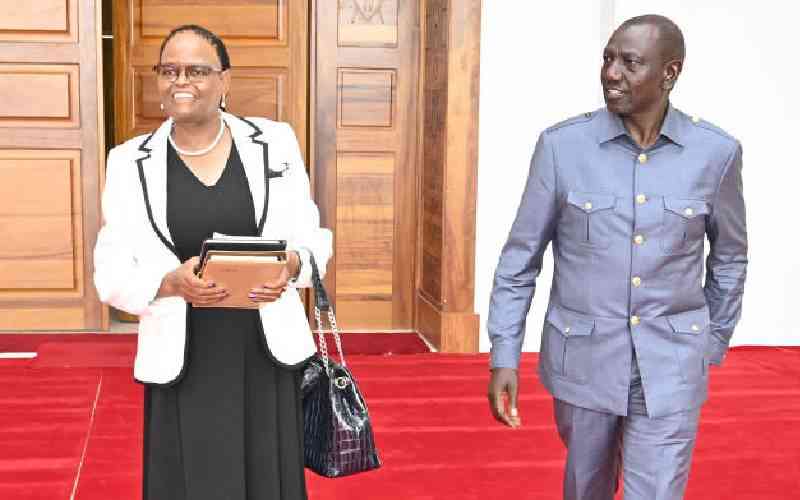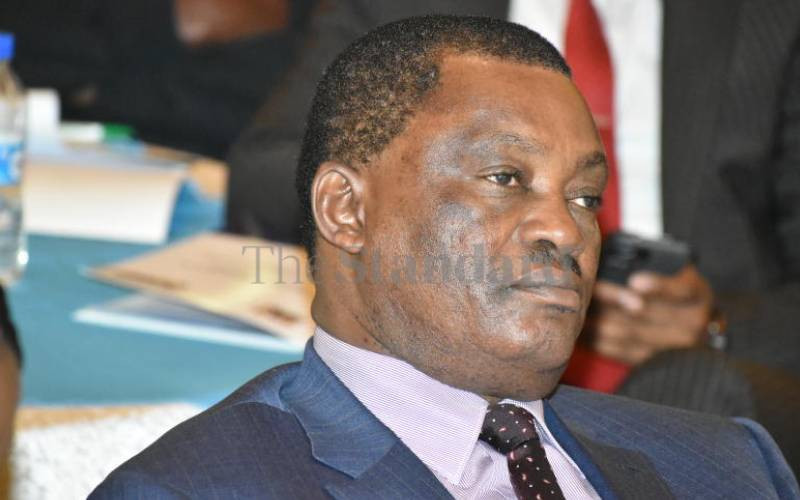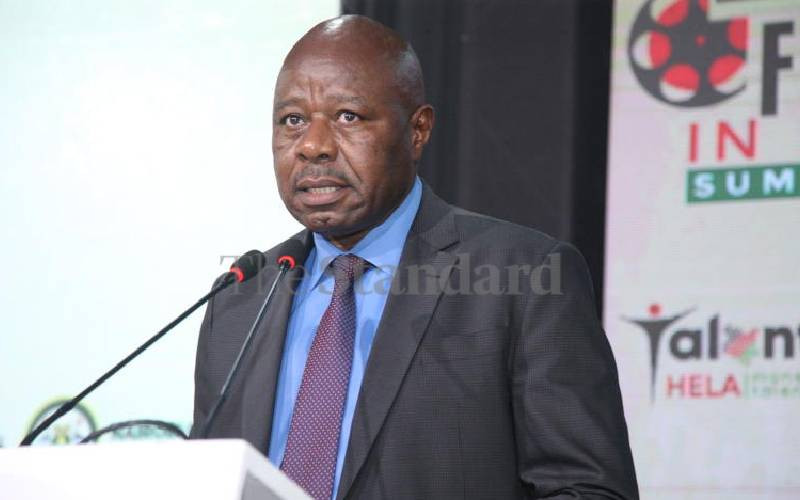Kenya’s foremost setback since independence remains the challenge of nationhood. Ironically, successive regimes only address this challenge as if it was an insignificant footnote. From Kenyatta to Kenyatta and Moi to Kibaki, nobody has given the challenge of nationhood any serious thought or focus.
Nobody has had clear thoughts on how to confront it, or to assess the gains. In any event, there have been no meaningful gains to talk about. On national days, we continue to reel off both real and imagined achievements that will go nowhere if we do not first fix the challenge of nationhood. Hence for twelve years now, the national leadership has told us about Kenya’s Vision 2030.
We want to become an industrialising middle-income country by the magic year called 2030. President Uhuru Kenyatta told us on Mashujaa Day that we could, in fact, realise this dream by the year 2020, ten years ahead of schedule.
The Presidential address predictably reeled off a catalogue of things that the Head of State said we have achieved and things we expect to achieve in the coming days. However, one of these things was not nationhood. It is assumed that we are a nation, we people called Kenyans. Yet this is a fallacy. The myth that we are one nation sits at the heart of what ails us.
At independence, we got a country. However, the country has not become a nation. It is a collection of 42 nations. These nations are often mutually suspicious of each other and sometimes even hostile to one another. Sound visions of the future ought to tell us how we are overcoming this, to become a nation.
We often hear, of course, the dull mantra of “nation building.” Political leaders will say things like, “Let us build the nation.” By this they mean engaging in economic metrics. We can quantify such metrics on Mashujaa Day or Jamuhuri Day. Accordingly, we may measure our development through woolly micro and macro economic indicators.
And therein resides our problem. None of the four presidents we have had this far has considered that nation building is about making one people out of the 42 peoples trapped in this country – to make them the Kenyan nation. We made a false start in 1963. We have done nothing to correct the mistake. Hence fifty-one years after independence, we are farther from true nationhood than we were at the start.
In Kenya: A History since Independence, Charles Hornsby has reminded us of our origins. He says of our country, “It was an artificial creation, following no natural boundaries, built through the imposition of will and technology by a small number of Europeans on a reluctant African population, directing African and Asian labour.”
At independence, we picked up the correct idiom – nation building. However, did we get the focus wrong? Did we misunderstand the notion of nation building? Should we probably have paid more attention to moulding ourselves into one people, even as we spoke of economic indicators? Do we need to hear more about this on national days rather than just being walked through statistics?
The late Prof Mazrui coined the terminology Tanzaphilia. This is the positive passion that Tanzanians have for their country and for one another. In Tanzania the independent state focused on humanism. In Kenya we focused on material competition that often took on an ugly ethnic character.
Hence in the 1970s, President Nyerere was in the habit of addressing his people on radio in a five-minute programme called Mazungumzo Baada Ya Habari. He would say of the Ujamaa political economy that his country had embraced, Ujamaa ni utu. This was to say, “Ujamaa is humanism.”
Kenneth Kaunda of Zambia, too, spoke of “humanism” as his country’s ideological orientation. Kenyatta spoke of a slain elephant that everyone should sharpen his knife to get a piece of. Kenyatta spoke of “hyenaism.” We became a man-eat-man people.
Tanzania and Zambia did not achieve much economically. They probably became a man-eat-nothing people. But they had better social gains overall. The Zambian Kwacha, for example, had been stronger than the British Pound Sterling at independence. By the time Kaunda left State House, you needed a wheelbarrow to cart away the equivalent of ten thousand pounds sterling.
For his part, Nyerere apologised to Tanzanians as he announced his retirement. “Fellow citizens,” he said, “Forgive me. I failed you. I intended well when I embraced Ujamaa. But it has not worked. Forgive me. But I assure you that I meant well.” These people did not build strong economies. But they built strong nations. They can now use these as foundations to strong economies.
Jomo Kenyatta built an economy, but failed to build a nation. President Moi built an economy in the first four years of his rule. By the time he was stepping down, the nation remained a pipe dream while the economy was a shambles. His successor, Mwai Kibaki, resuscitated the economy. But he forgot to build a nation. History will be unforgiving to Mzee Kibaki, in this respect.
Stay informed. Subscribe to our newsletter
Kenya’s most hopeful and euphoric moment since independence was the brief season between the day Mwai Kibaki was declared President-elect and the few days that followed his inauguration in in 2002. It soon became clear that Mzee Kibaki, for all his fulmination against Moi – whom he derisively referred to in his address as “those who came before us” – Kibaki was just another “Nyayo man.”
He followed in the footsteps of Kenyatta and Moi in matters of nation building. President Uhuru Kenyatta is walking in the same footsteps – anafwata nyayo. He took good lessons from his predecessors. He sees nation building through the thin prisms of economic metrics. That is why his official address mechanically focused on the tired catalogue of “We have achieved so many figures here and so many there.” When it was not this it was, “We intend to produce so many figures here and so many there.”
All this is very good, really. But it will not take this country far. Consider the fact that President Kenyatta has twice, in as many weeks, postponed a planned visit to Kisumu. They say that the CORD leader Raila Odinga must accompany the President; otherwise, there will be trouble in Kisumu. Someone might throw old shoes at the President. This is worse than scandalous. Fifty-one years after independence, the President of Kenya cannot visit some part of the country because it “belongs” to someone else. The metric of this “ownership” is ethnicity.
In the end, it doesn’t matter how many statistics we roll out. What really counts is whether we are edging in to Kenyan nationhood or not. Our first lesson is going to be that you cannot fake nationhood. You cannot legislate it or impose it through watchdog cohesion and integration commissions. President Kenyatta’s biggest focus should be the challenge of nationhood. Belonging to the nation depends on how we feel the nation is treating us. Over to you, Mister President.
 The Standard Group Plc is a
multi-media organization with investments in media platforms spanning newspaper
print operations, television, radio broadcasting, digital and online services. The
Standard Group is recognized as a leading multi-media house in Kenya with a key
influence in matters of national and international interest.
The Standard Group Plc is a
multi-media organization with investments in media platforms spanning newspaper
print operations, television, radio broadcasting, digital and online services. The
Standard Group is recognized as a leading multi-media house in Kenya with a key
influence in matters of national and international interest.
 The Standard Group Plc is a
multi-media organization with investments in media platforms spanning newspaper
print operations, television, radio broadcasting, digital and online services. The
Standard Group is recognized as a leading multi-media house in Kenya with a key
influence in matters of national and international interest.
The Standard Group Plc is a
multi-media organization with investments in media platforms spanning newspaper
print operations, television, radio broadcasting, digital and online services. The
Standard Group is recognized as a leading multi-media house in Kenya with a key
influence in matters of national and international interest.









